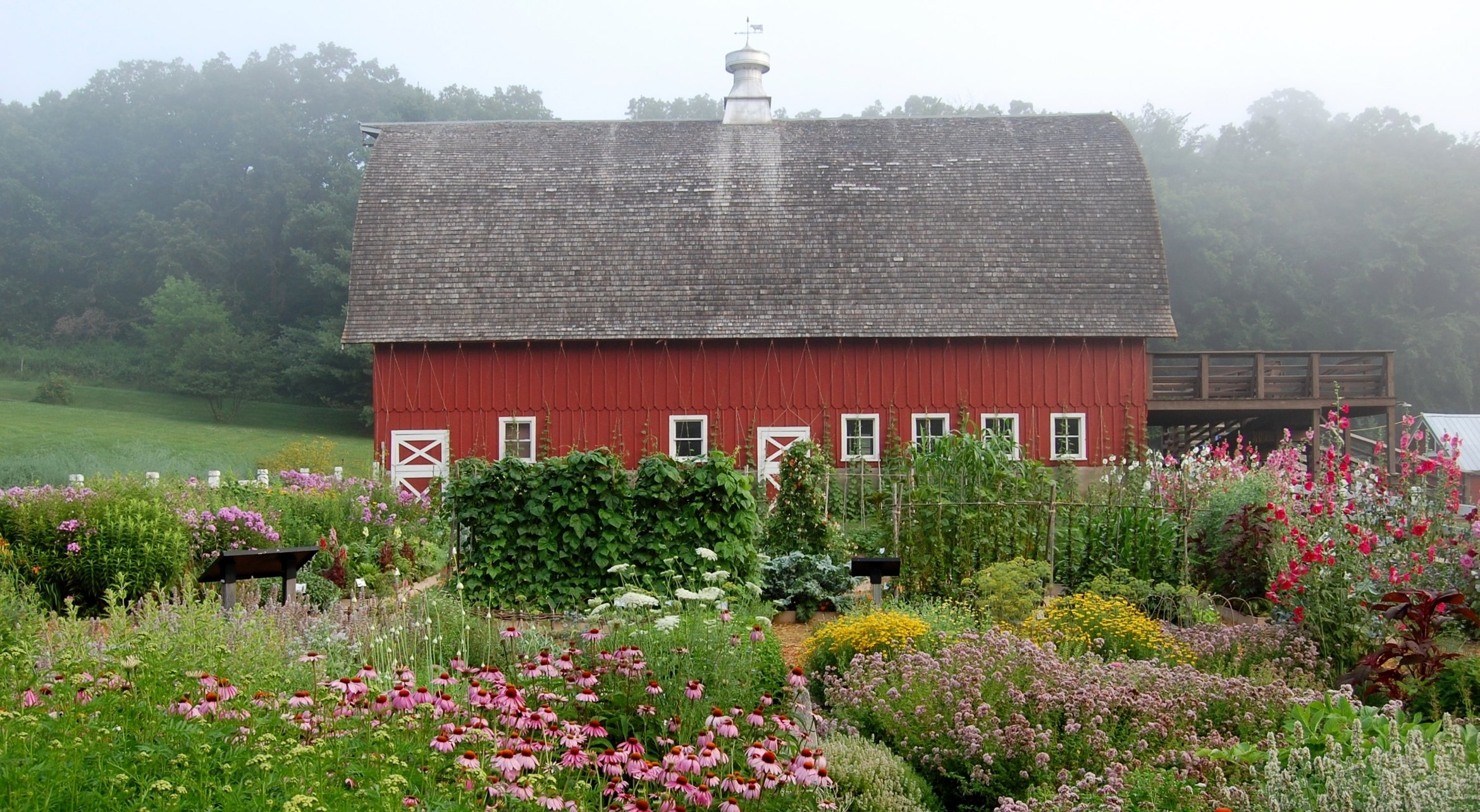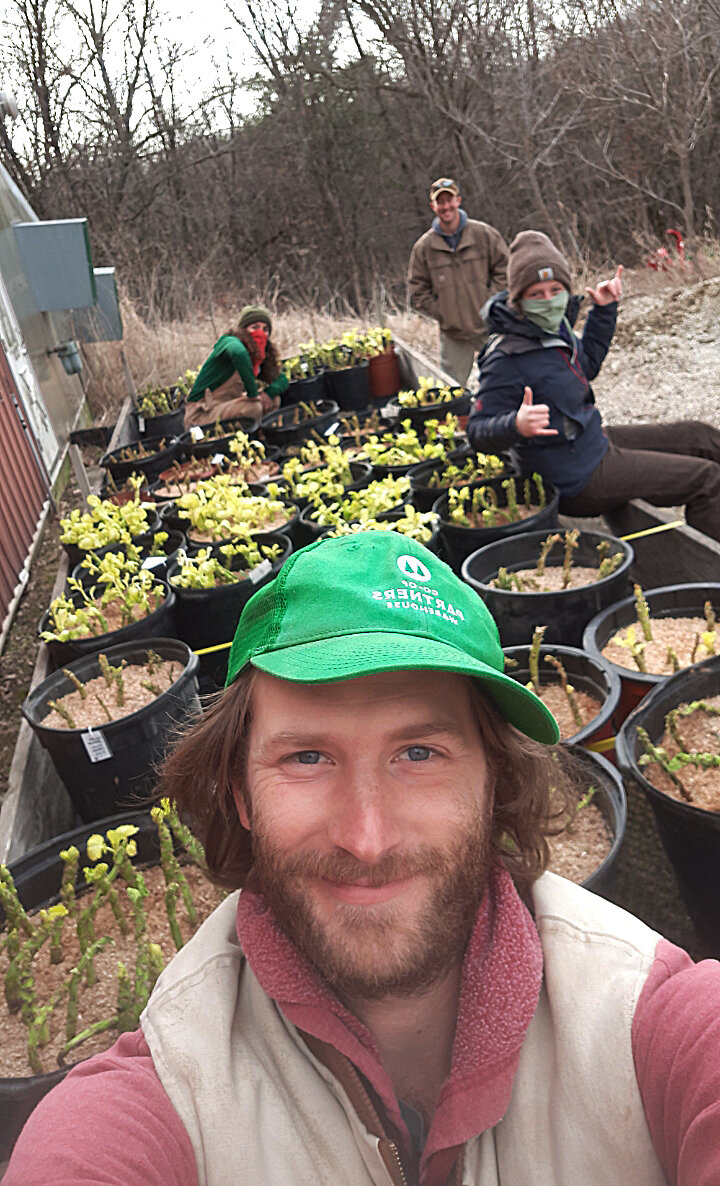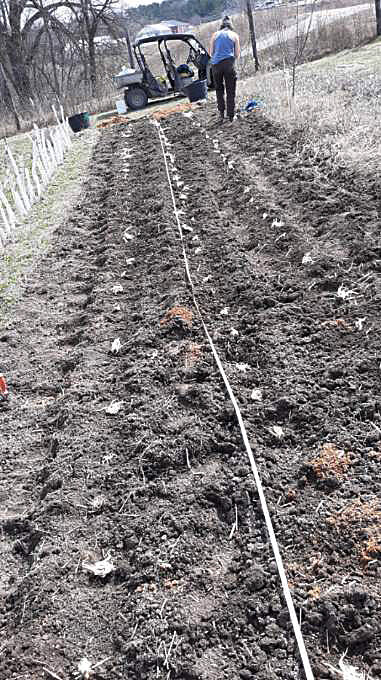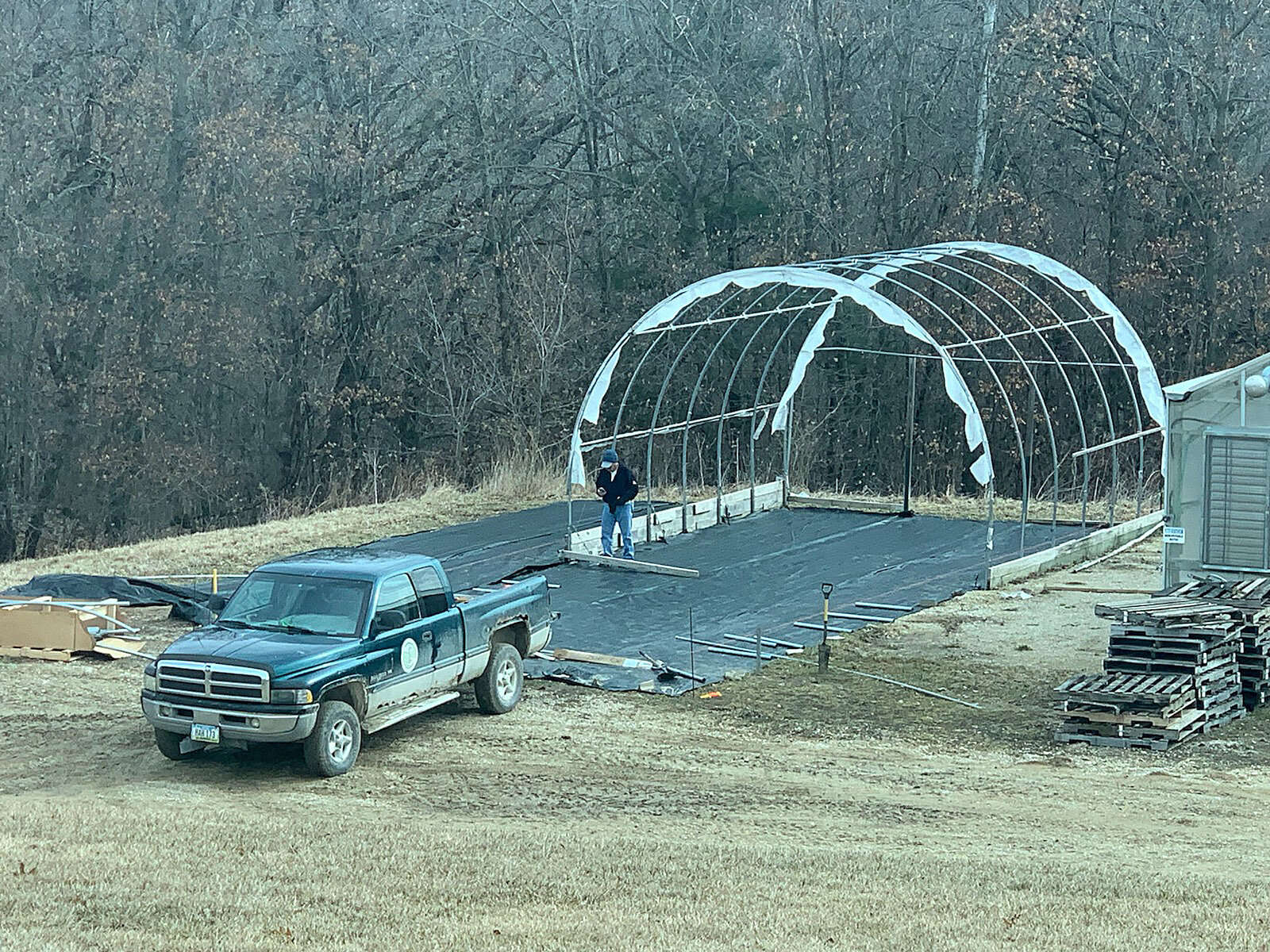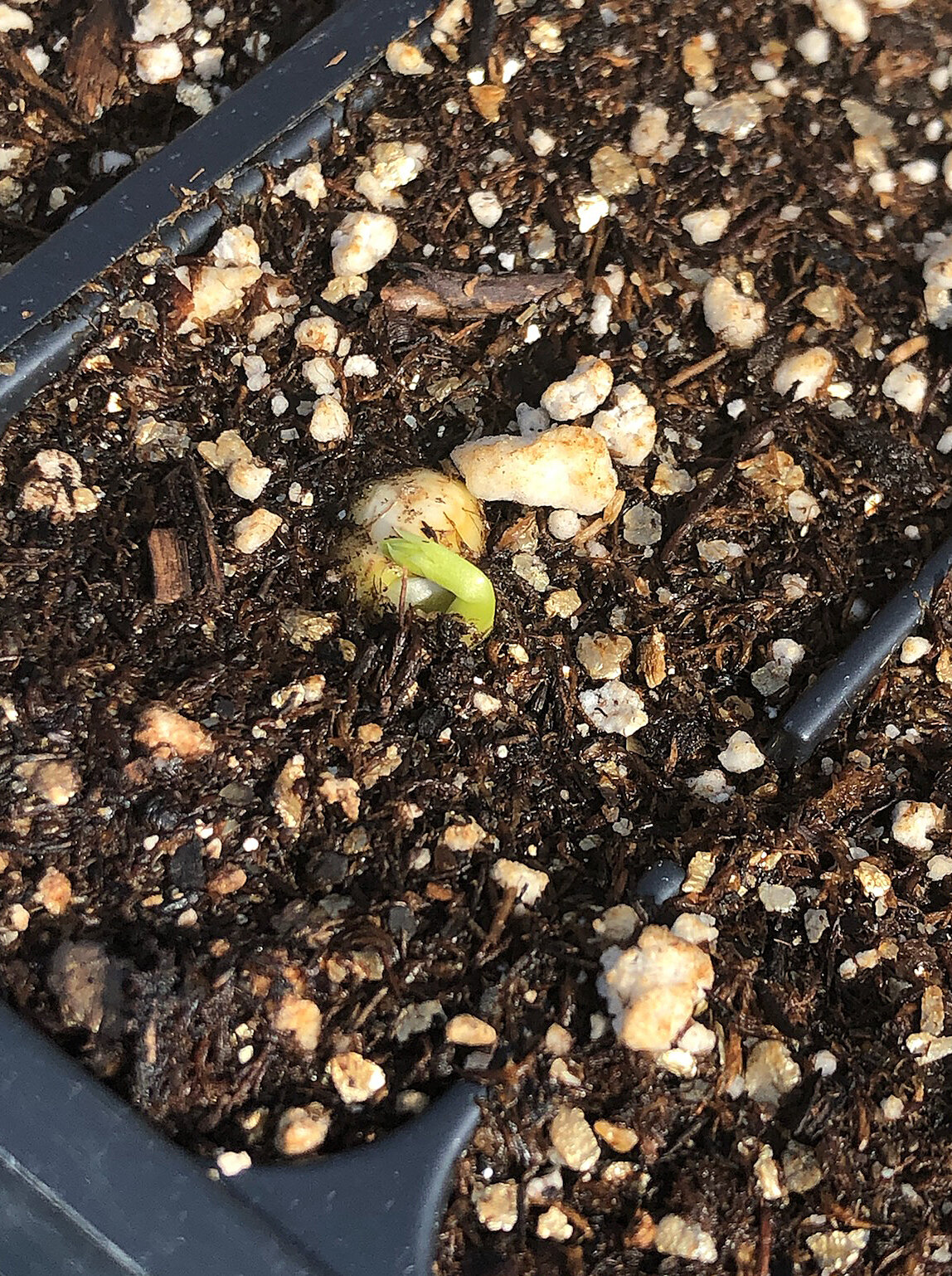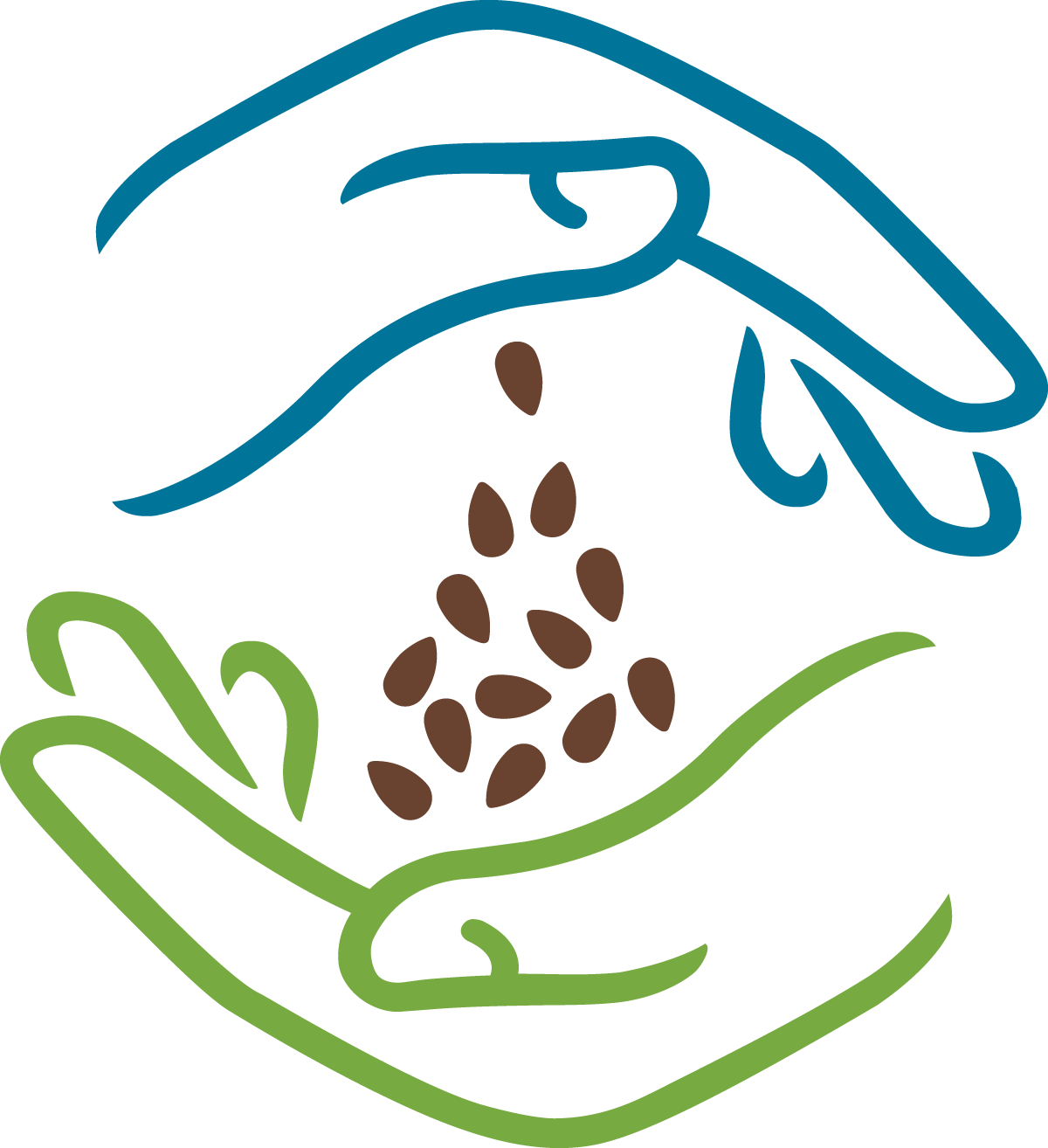The Season Must Go On: Seed Stewardship Through a Pandemic
/Seed Savers Exchange field-ops team members harden off biennials from the root cellar by placing the plants on movable trailers outdoors at Heritage Farm. Pictured (clockwise from front) Cody Egan (catalog field coordinator), Sarah Cousins (greenhouse manager), Trevor Thomas (field technician), and Rochelle Wiedenhoeft (collection field coordinator). (Photo by Cody Egan)
For the past month, all sectors of our society have been affected by the global COVID-19 pandemic, including agricultural organizations like Seed Savers Exchange. Given that the agricultural sector has been deemed essential, our season must go on. How do we carry out our mission carefully and thoughtfully here in northeast Iowa through a global pandemic? In order to continue our seed-production activities for our seed catalog and seed bank at Heritage Farm, we have had to switch gears quickly and wanted to share the changes and adaptations we have made with our members, donors, and other supporters.
Rochelle Wiedenhoeft, collection field coordinator, transplants salsify, a biennial crop being grown for regeneration this year at Heritage Farm.
In a typical season, given our small-scale, labor-dependent fields, our success relies on many healthy people working together side by side to prepare the soil, plant, mulch, weed, and harvest—in short, to do all the work of growing out hundreds of varieties spread out in 35 acres on a 890-acre farm. However, this season’s success will depend on safety through spacing and sanitation practices.
Greg Borgstahl, facilities staff, conducts early-spring renovation of the hardening-off area for greenhouse transplants. This structured was damaged by straight-line winds in 2019.
We are restructuring our field and seed steward crews to work together yet apart, which takes a lot more planning, preparation, and training. To increase physical distancing while we work, we will continue to have smaller work crews, limit the number of people in various spaces, and communicate primarily by walkie talkies, emails, and online meetings. To further minimize the chance of exposure to the disease, we are wearing face masks and bandanas in the work trucks and in confined spaces and implementing thorough sanitization practices for tools, trucks, field and storage sheds, and other buildings and equipment. All of these practices entail new (and evolving) protocols that rely on thoroughness and attention to detail, which is fortunate because those principles inform our seed stewardship work at Heritage Farm already.
Germination winner! ‘Excelsior’ was the first pea variety from the SSE Collection to sprout in the greenhouse. (Photo by Sarah Cousins)
For the last couple of weeks, our field production team has grappled with not only the social and economic layers of pandemic adaptations but also the biological and ecological layers of climate chaos. Last week we had a major thaw and warm-up with 60- degree F days and humidity so we began to prep our fields for biennial transplants and rake mulch off of our garlic beds. This was followed by freezing temperatures, a mini-blizzard, and daytime highs in the 30s. Fortunately, small-scale, organic agricultural practices have taught us to be adaptable on a day-to-day basis and uphold high standards of land and people care simultaneously, which is exactly how we will carry out this season through this pandemic. We hope you can find ways to support people and land care through these challenging times, and wish you and your community a safe and blossoming spring season.

